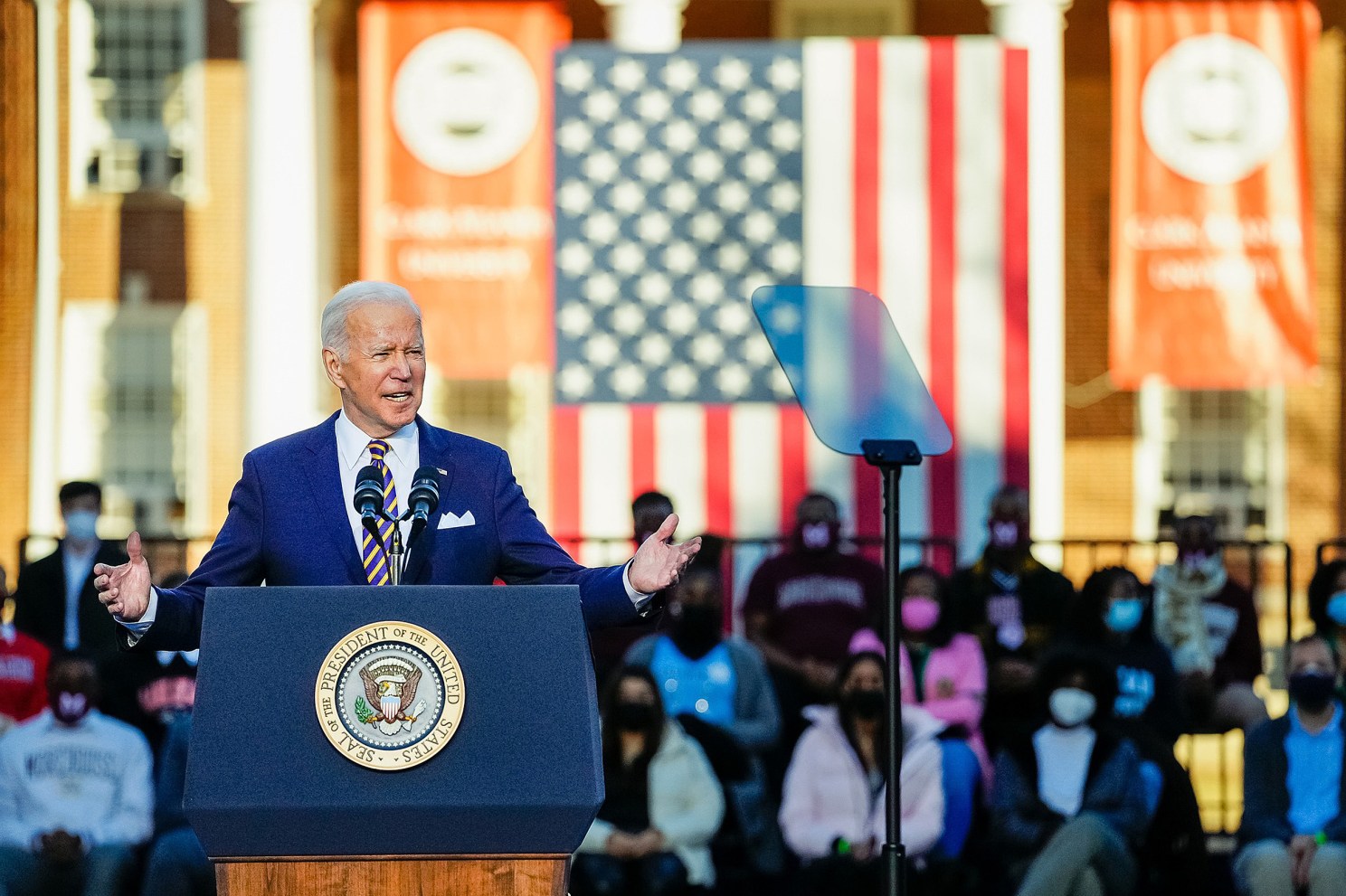The future of the filibuster and voting rights in Congress

President Joe Biden gives a speech on voting rights. The White House/Public Domain
With landmark voting rights legislation stalled in Congress, calls for eliminating or modifying the filibuster have increased as some states work to tighten restrictions on voting ahead of the 2022 midterm elections. After some initial hesitation, President Biden recently joined the chorus of those calling for an end to the filibuster for voting rights bills pending in the Senate. To discuss the filibuster and its impact on voting rights and the Senate, we sat down with Archon Fung, Winthrop Laflin McCormack Professor of Citizenship and Democracy at Harvard Kennedy School and the director of the Ash Center for Democratic Governance and Innovation’s Democratic Governance Program.
Q&A
Archon Fung
Ash Center: What do you think is at stake with the two pieces of voting rights legislation pending in the Senate : the Freedom to Vote Act and the John Lewis Voting Rights Advancement Act?
Fung: In a democracy, voters should pick the politicians and not the other way around. These important pieces of legislation would help move toward that goal in three ways. The Freedom to Vote Act would make it easier to vote through measures such as early voting, vote by mail, online registration, same-day registration, and making Election Day a holiday. My friends who study democracies around the world say that it’s harder to vote in the U.S. than in many other democracies. We need to fix that. Additionally, these laws would make it harder for politicians to amplify the votes of their supporters and diminish the voting strength of their opponents through partisan gerrymandering and changing voting procedures. The Freedom to Vote Act would also help to regulate the largely unchecked power of money in politics by requiring additional disclosure and increasing the influence of small donors.
Ash Center: Do you agree with President Biden’s calls to eliminate the filibuster for voting rights legislation?
Fung: I do. “Veto” measures like the filibuster — in which a minority or an individual can block the majority — should be reserved to issues in which someone’s rights or fundamental interests are at stake. Democratic majorities can do great injustice — we call that “tyranny of the majority” — and so sometimes vetoes against majorities operate as an important way to defend justice. But this is not one of those cases. These voting rights laws would enable more Americans to participate in our democracy with greater ease and equality. The only interest these laws threaten is the interest of politicians who can’t win more votes under these conditions. That’s a democratically depraved reason to exercise a legislative veto, and I’m against it.
Ash Center: Should the filibuster be eliminated in its entirety for all legislation?
Fung: No, as I said, super-majority and veto procedures like the filibuster can be important in protecting fundamental interests when tyranny of the majority threatens justice.
Other important decisions — those that are highly consequential or risky for our republic — should be also decided by super-majorities, not simple majorities. I think it was right that Senator Robert Byrd (D – WV) attempted to mount a filibuster against authorizing the invasion of Iraq in 2002 (he was defeated 75-25). Starting forever wars should require more than a simple majority.
Ash Center: Are you concerned that eliminating the filibuster would remove an important tool for protecting minority prerogatives in the Senate?
Fung: I think the Senate should develop norms for using the filibuster that are more functional for our democracy. For example, exercising a filibuster should be costly. Perhaps its use should be limited to laws in which basic justice is at stake or for laws and policies that are extraordinarily consequential – such as decisions to go to war. I also think it would be appropriate to filibuster measures that diminish democracy – for instance, laws that would take votes away from some groups or make it hard for them to vote.
Ash Center: If the Senate did away with the filibuster entirely, do you share the concerns of some observers that a filibuster-free body would be more able to advance anti-democratic legislation in the future?
Fung: Yes, of course. Democracies always face the danger that a politician or party will use the power granted to it by a temporary majority to entrench itself by rigging the political rules in its favor. Gerrymandering at the state level is a common example of this kind of anti-democratic rule-rigging. I think it is quite likely that majorities in the Senate (or any legislative body) will try to do that in the future. But it doesn’t make sense to me to defend an inappropriate use of the filibuster – blocking the John Lewis Voting Rights Advancement Act and the Freedom to Vote Act now – in the hope that someone might be able to use it for an appropriate defense of democracy in the future. I would much rather see Senators and the American public agree upon procedures and rules in which the filibuster is used for a limited range of questions in ways that reinforce the success of our democratic machinery.




